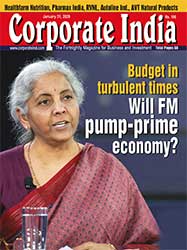Want to Subscribe?
Read Corporate India and add to your Business Intelligence

![]() Unlock Unlimited Access
Unlock Unlimited Access

Finance
Published: July 17, 2023
Updated: July 17, 2023
As the monsoon season brings heavy rains and potential damage to vehicles, it is crucial to have a comprehensive understanding of car insurance terms. Familiarising yourself with key terms such as Insured Declared Value (IDV), deductibles, and add-ons like zero depreciation and engine protection can prove invaluable when selecting a car insurance policy. This article explores these essential terms to empower you with the knowledge needed to make informed decisions and protect your vehicle during the monsoon season.
Understanding the Maximum Claim Amount Insured declared value (IDV) represents the maximum amount an insurance company will pay in the event of a total loss or theft of your car. Similar to the sum assured in health or life insurance, the IDV is calculated based on the car's ex-showroom price and depreciation. With each passing year, as the car depreciates, the IDV also decreases. The IDV is disclosed in your car insurance policy schedule, along with your policy premium.
A third-party cover is a mandatory component of any car insurance policy. It provides coverage for damages caused by your car to a third party. This includes damage to other vehicles, property, and even injuries or death resulting from a car accident involving you. It ensures that you are financially protected against liabilities arising from such incidents.
Under car insurance regulations set by the Insurance Regulatory and Development Authority of India (IRDAI), every car owner must have a personal accident cover of Rs 15 lakh. This cover provides financial protection for medical expenses, permanent disability, and death resulting from an accident. You can opt for a higher cover by paying an additional premium if desired.
Deductibles are the amount that the policyholder must pay before the insurance company covers the remaining claim amount. It applies to each claim filed. There are two types of deductibles: compulsory and voluntary. The compulsory deductible is fixed by IRDAI regulations, while the voluntary deductible allows you to choose a higher portion of the repair bill to pay, in exchange for a lower premium.
Zero depreciation is an add-on cover that ensures the full cost of replacing car parts (without accounting for depreciation) in case of an accident. Without this cover, the insurance company compensates based on the depreciated value of the parts. Zero depreciation cover comes at an additional cost but offers more comprehensive coverage and can be beneficial, especially during the monsoon season.
Engine protect is another add-on cover that provides financial protection for engine repairs
or replacements caused by factors other than accidents. It covers damages resulting from
water ingression, lubricating oil leakage, gearbox malfunction, and more. Contacting the
insurance company promptly in case of engine damage due to water-logging is crucial, as
forcing the submerged car can invalidate the coverage.
As monsoon brings potential risks to your vehicle, understanding essential car insurance
terms becomes paramount. Being familiar with terms such as IDV, deductibles, zero
depreciation, and engine protection empowers you to make informed decisions while
choosing the right insurance policy. By securing comprehensive coverage and considering
the additional costs and benefits of add-ons, you can safeguard your vehicle against
potential damage during the monsoon season.

January 31, 2026 - Second Issue

Industry Review

Want to Subscribe?
Read Corporate India and add to your Business Intelligence

![]() Unlock Unlimited Access
Unlock Unlimited Access
Lighter Vein

Popular Stories
Archives
